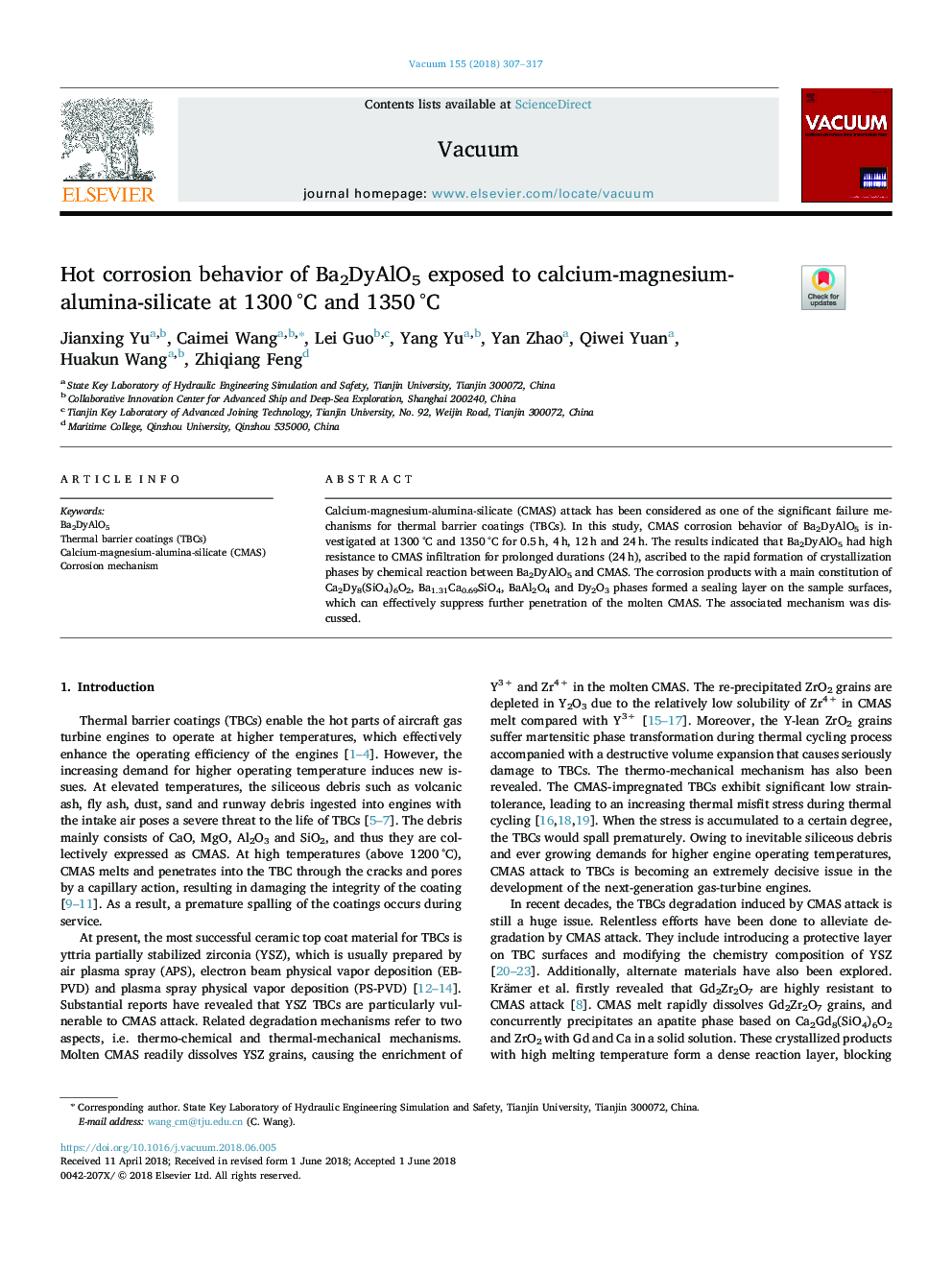| Article ID | Journal | Published Year | Pages | File Type |
|---|---|---|---|---|
| 8044173 | Vacuum | 2018 | 11 Pages |
Abstract
Calcium-magnesium-alumina-silicate (CMAS) attack has been considered as one of the significant failure mechanisms for thermal barrier coatings (TBCs). In this study, CMAS corrosion behavior of Ba2DyAlO5 is investigated at 1300â¯Â°C and 1350â¯Â°C for 0.5â¯h, 4â¯h, 12â¯h and 24â¯h. The results indicated that Ba2DyAlO5 had high resistance to CMAS infiltration for prolonged durations (24â¯h), ascribed to the rapid formation of crystallization phases by chemical reaction between Ba2DyAlO5 and CMAS. The corrosion products with a main constitution of Ca2Dy8(SiO4)6O2, Ba1.31Ca0.69SiO4, BaAl2O4 and Dy2O3 phases formed a sealing layer on the sample surfaces, which can effectively suppress further penetration of the molten CMAS. The associated mechanism was discussed.
Keywords
Related Topics
Physical Sciences and Engineering
Materials Science
Surfaces, Coatings and Films
Authors
Jianxing Yu, Caimei Wang, Lei Guo, Yang Yu, Yan Zhao, Qiwei Yuan, Huakun Wang, Zhiqiang Feng,
